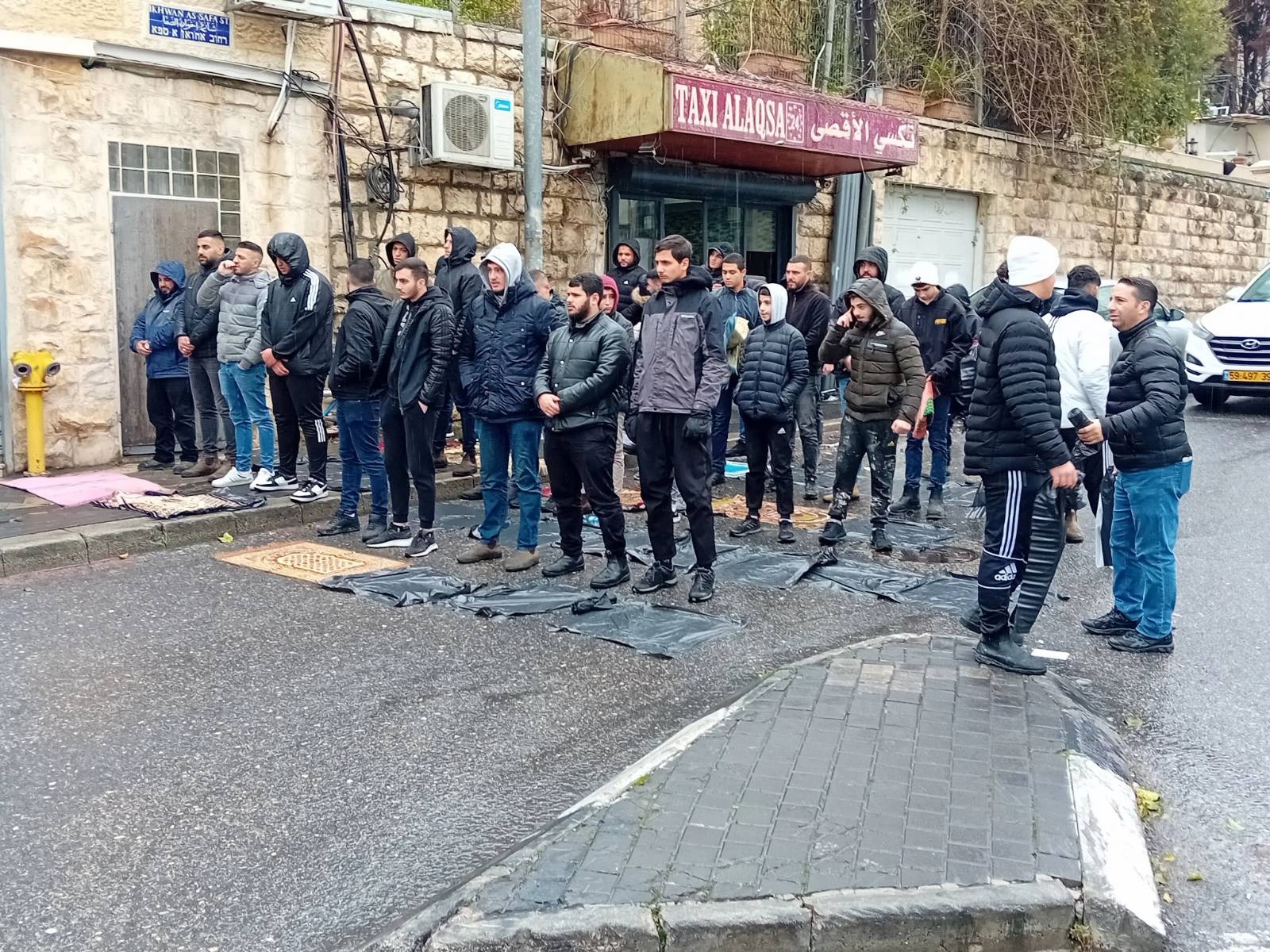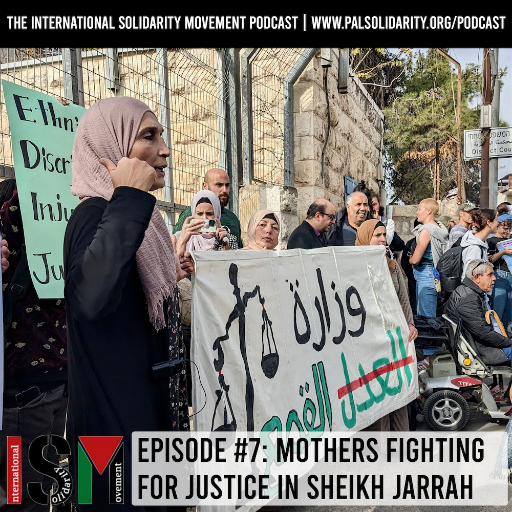Tag: East Jerusalem
-
Muslim worshippers continue to be blocked from Al Aqsa Mosque
12 January 2024 | International Solidarity Movement | East Jerusalem Video showing the attack by the IOF on worshippers at Wadi Al Joz. Credit: ISM The arbitrary restrictions on Palestinian Muslims accessing the holy site in Jerusalem for prayers have now been in place for over four months. These restrictions continue to be imposed…
-
The International Solidarity Movement podcast episode seven: Mothers fighting for Justice in Sheikh Jarrah
In this episode, we share an interview with Um Ramadan. We met her at a demonstration outside the district court in Jerusalem in December 2022. Alongside other mothers, she is protesting her son’s imprisonment. In this moving interview, she talks about the conditions her son is kept in and how mother’s are organising to support…
-
Isawiya, a Palestinian town under siege by the Israeli occupation forces
August 1 | International Solidarity Movement | Isawiya, East Jerusalem, occupied Palestine For the past two months, Isawiya, a Palestinian neighbourhood of 17,000 in East Jerusalem, has been under a constant state of siege by Israeli Occupation Forces (IOF). Tactics used by the IOF include nightly raids, arbitrary arrests, indiscriminate use of tear gas, rubber…



